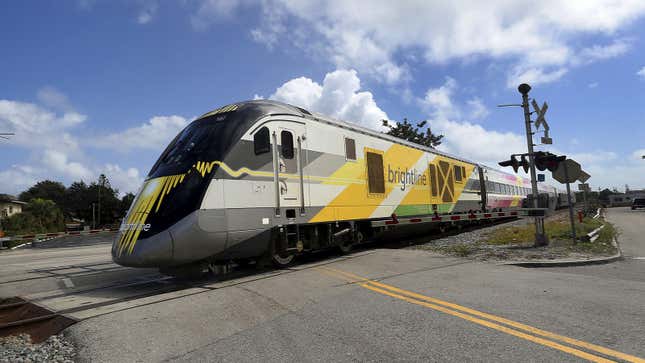
New train day should be a positive one filled with stories about happy commuters that are finally able to leave their cars at home and ride to work. But today, the day Brightline began the first high-speed rail link between Miami and Orlando, isn’t one of those days. That’s because America’s deadliest rail line has struck and killed another pedestrian.
This morning, amid much fanfare, Brightline kicked off its first service from Miami to Orlando in Florida. The inaugural service was sold out, according to local news, and makes the journey from Miami to Orlando in around three and a half hours thanks to a top speed of up to 125 mph.
However, just minutes before the first Miami to Orlando train was set to depart this morning, another Brightline train hit and killed a pedestrian. According to the Palm Beach Post, the Brightline service was traveling through Delray Beach when the incident occurred.
The victim, who has not yet been identified by authorities, was killed on the southbound tracks at Southeast Second Avenue and Southeast Fourth Street in Delray Beach. The Palm Beach Post adds that the “train had left the West Palm Beach station minutes earlier.” The site reports:
The fatality was at least the sixth involving pedestrians and Brightline trains in Palm Beach County this year, and the fourth in Delray Beach. Two people died on Feb. 8 and another on June 5. Other fatalities took place Jan. 21 in Boca Raton and May 12 in Lake Worth Beach.
While there was a barrier across the road at the intersection between the Brightline tracks and Southeast Second Avenue, the rail line uses old FEC Railway tracks that have “have few barriers to pedestrians walking along them or crossing them.”
It’s this infrastructure along the rail line that has earned Brightline the title of deadliest railway in America. In the past year alone, trains on the line have hit a car transporter and SUV and a car that was lost on its tracks.
While I’ll always come out in favor of more trains, that can only happen when governments and private companies are prepared to invest in safety measures that protect rail riders and those who live and travel around the tracks.

